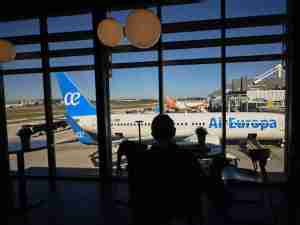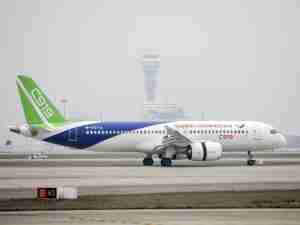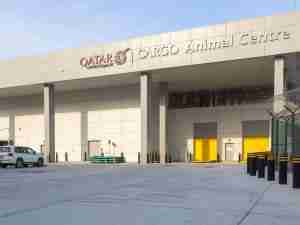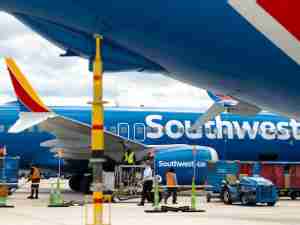Southwest Airlines Co. says it’s sparing nothing in an operations review after a Christmastime meltdown stranded tens of thousands of passengers. But that’s not likely to include junking its network or losing its top executive.
Chief Executive Officer Bob Jordan is pledging that no aspect will escape scrutiny, including the airline’s unique point-to-point route network that can limit the flexibility of its planes and crew deployment during disruptions. Jordan, who took the top job less than a year ago, told employees that he considers himself accountable for the meltdown and that Southwest may need to make adjustments to its network.
“As we look backwards once we’re through this, everything is on the table,” Jordan told reporters on a conference call.

He qualified those remarks by saying it’s his “gut feeling” the point-to-point system will remain in place with possible tweaks, and analysts say Jordan’s job is likely secure as he works to win back the good graces of investors and passengers.
“It’s hard for me to see that any kind of heads need to roll,” Savanthi Syth, a Raymond James Financial Inc. analyst, said in an interview.
The airline’s outdated scheduling system is shouldering most of the blame for now, with Southwest saying it will make technology investments in that area a priority going forward. The computer software was overwhelmed when last week’s massive winter storm disrupted operations at many key airports.
Analysts say the airline has historically invested too little and too late in technology compared with its peers. That reflects Southwest’s roots as a scrappy, cost-conscious Texas upstart that has rapidly grown into the largest domestic carrier in terms of passengers flown.
Shares of Southwest tumbled this week, including their worst two-day slump since June 2020.
A second meltdown in less than two years shows how vulnerable the airline’s operations have become when its network is stressed, and could constrain growth until solutions are identified.
Southwest canceled more than 15,700 flights from Dec. 22 through Dec. 29, or almost 51% of its total, according to FlightAware data. That will “certainly” impact financial results this quarter, Jordan said. The cancellation of 3,100 flights over four days in October 2021 cost the carrier $75 million in lost revenue.
Southwest had been planning to increase flying capacity 15% next year, adding back routes it cut during the pandemic. But the airline said that’s among things that will be reviewed after the recent debacle.
Old Technology
Going forward, Southwest could consider having more flight crews return to their home bases at the end of the day, a plan used by some deep discount point-to-point airlines, Syth said. But reworking the network would pressure costs and make it tougher to offer cheap fares.
It’s also “hard to make fixes when you’re growing very rapidly,” she said.
The scheduling system, which requires the airline speak to pilots and flight attendants to notify them of changes instead of using an app, should have been upgraded “a long time ago” but it was put off in favor of other investments, said Andrew Davis, a former transportation analyst at T. Rowe Price Inc., the fourth-largest Southwest shareholder.
“Things that improved revenue and economic performance got pushed to the front because that’s what investors wanted to see,” Davis said.
The carrier replaced its passenger reservation and aircraft maintenance systems late in the 17-year tenure of former CEO Gary Kelly. More recently, other improvements in flight operations had been prioritized ahead of the scheduling system, Chief Operating Officer Andrew Watterson said.
Southwest updated some technology as a short-term fix to this week’s issues and has found employees who can take on last-minute work when needed. It eventually will replace the scheduling system, but that could take years.
Major Crisis
This is the first major crisis for Jordan, a 34-year Southwest veteran who took over as CEO when Kelly became chairman in February. The company had an industry-leading string of annual profits until the pandemic hit in 2020.
“They have an incredibly successful business model that I don’t expect to change at all because of this,” said Jerry Glass, a former US Airways executive who now heads consultant F&H Solutions Group.
In the meantime, Southwest will face scrutiny in Washington and in the court of public opinion. Transportation Secretary Pete Buttigieg says the government could fine the carrier tens of thousands of dollars per violation if it fails to keep commitments to passengers affected by the cancellations, including refunds and reimbursements for things like hotels and meals.
“It’s possible this will motivate Congress to strengthen the regulatory authority of the Department of Transportation and allow them to mandate more consumer protection,” Bill Baer, who led the Justice Department’s antitrust division under President Obama, said in an interview. “There’s got to be a look at whether the DOT has authority to punish or fine airlines that fall short of minimum standards.”
The debacle also reinforces the need for antitrust scrutiny of further airline consolidation, including JetBlue Airways Corp.’s pending acquisition of Spirit Airlines Inc., Baer said. Four airlines now control about 80% of the market.











